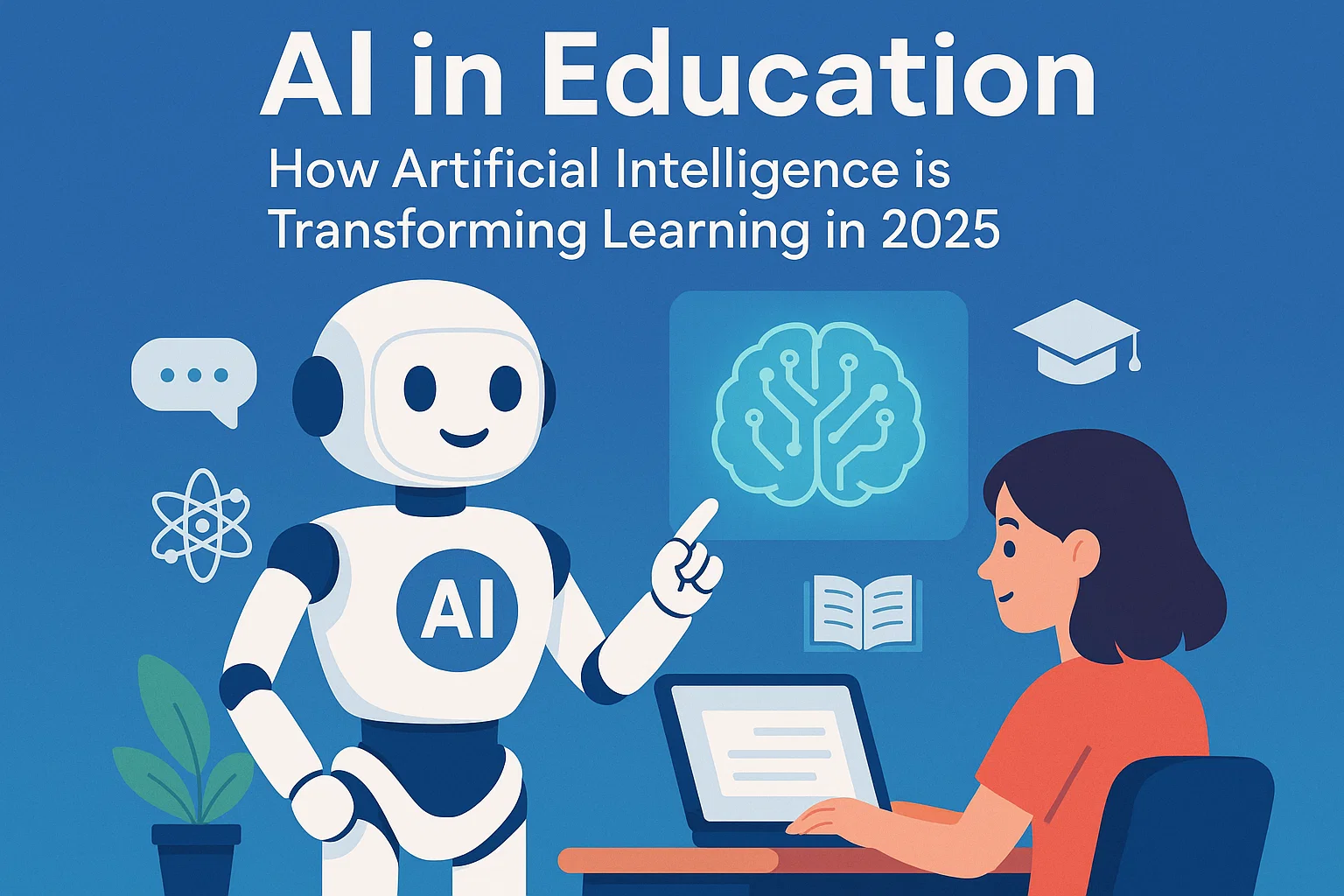AI in Education: How Artificial Intelligence is Transforming Learning in 2025

AI in Education: How Artificial Intelligence is Transforming Learning in 2025
The education industry has always evolved with technology, from blackboards to digital classrooms. Now, in 2025, Artificial Intelligence (AI) is not just a buzzword—it is fundamentally reshaping how students learn, how teachers teach, and how institutions operate worldwide.
1. Personalized Learning Powered by AI
One of the most impactful uses of AI in education is personalized learning. Instead of the traditional one-size-fits-all approach, AI algorithms analyze student performance, interests, and pace of learning to create customized study plans. This ensures that every student, regardless of background or ability, learns at their best potential.
2. AI-Powered Virtual Tutors
Gone are the days when students had to wait for classroom sessions or after-school coaching. AI-powered tutors are now available 24/7, answering questions, explaining concepts, and even providing step-by-step problem-solving assistance. This reduces dependency on physical resources and ensures equitable access to education worldwide.
3. Adaptive Assessments and Smart Grading
AI has introduced adaptive assessments that adjust difficulty levels based on student responses. This ensures fairer evaluations and provides instant feedback. Moreover, AI-driven grading systems reduce teacher workload by automating repetitive tasks, allowing educators to focus more on mentorship and student engagement.
4. Enhanced Accessibility with AI Tools
Students with disabilities are experiencing a new era of accessibility thanks to AI. From speech-to-text transcription for hearing-impaired learners to AI-driven translation tools for language barriers, education is becoming more inclusive and globally connected.
5. AI in Higher Education and Research
Universities and research institutions are using AI to accelerate discoveries, analyze massive datasets, and even assist in writing research papers. Fields like medicine, engineering, and space exploration are benefiting immensely from AI-powered tools that reduce time-consuming manual analysis.
6. The Role of AI in Career Guidance
AI-based platforms analyze global job market trends, student skills, and industry demands to suggest career paths. This enables students to make informed decisions and pursue certifications, degrees, or skill-based courses aligned with their long-term goals.
7. Ethical Concerns of AI in Education
While AI offers many advantages, there are also concerns around data privacy, algorithmic bias, and over-reliance on technology. Policymakers and institutions must strike a balance between AI innovation and maintaining ethical standards in education.
8. Future of AI in Education by 2030
Looking ahead, AI in education will become more immersive, with technologies like augmented reality (AR), virtual reality (VR), and AI-powered simulations providing students with real-world learning experiences. The global education market is expected to grow exponentially, with AI playing a central role in shaping the workforce of tomorrow.
Conclusion
AI in education is not a replacement for teachers but a powerful ally that enhances learning experiences, improves accessibility, and prepares students for a technology-driven future. As we move toward 2030, the integration of AI will continue to break barriers and democratize education worldwide.
Comments (3)